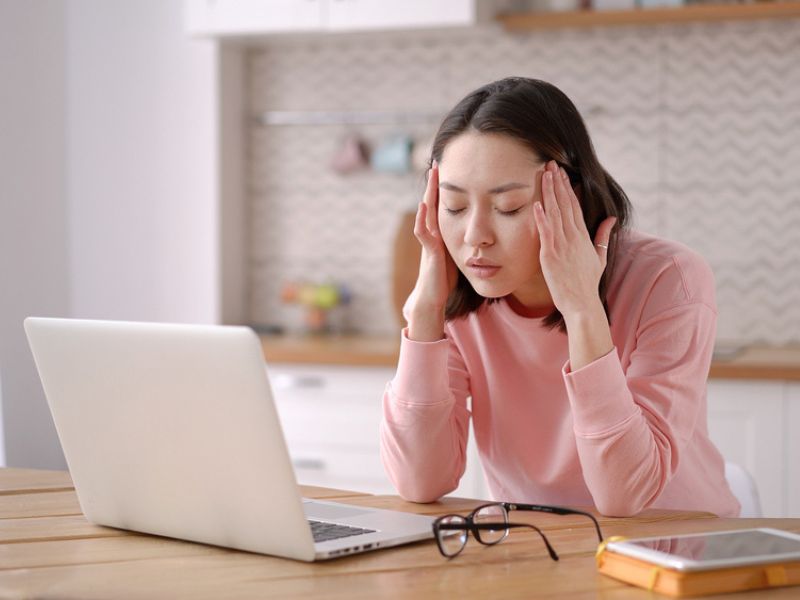Some people may experience mental health issues and physical and emotional exhaustion as they return to work and personal life after the pandemic. Patients report feeling tired or stuck to psychiatrists, although it may be hard to explain. One psychiatrist has described the feeling as “lifestyle fatigue.”
Psychotherapist Sean Grover writes in Psychology Today that someone experiencing lifestyle fatigue may be “stuck in a rut.” Grover does not diagnose lifestyle fatigue. In contrast to depression, it’s more of a sign of being stuck than stressed. A mental health professional can help you if you think you are suffering from lifestyle fatigue.

Image Credit: Shutterstock/Evgeny Atamanenko
How To Know If You Have Lifestyle
Fatigue?
But for people who are self-reflecting on their mental health, framing it in terms of lifestyle fatigue could be a helpful way to think through their issues. Grover lists some questions, such as:
- Does everyday feel monotonous?
- Is your work boring and unrewarding?
- Is leaving the house a chore for you?
- Does your screen time outweigh your time with people?
- Are you losing your creative drive?
- Is it common for you to obsess or ruminate about your failures?
- Do you find yourself wasting time doing activities that once gave you pleasure?

Image Credit: Shutterstock/GoSlow
Lifestyle fatigue also refers to the emotional toll people’s personal lives, environment, and news stories have on their mental health. Psychologist Elaina DellaCava, a psychiatrist at Weill Cornell Medicine, told HuffPost, “you lack the energy to do things, you lack the motivation, and there are things you feel you should do but no longer have the desire to do.”
For someone experiencing emotional exhaustion, everyday activities can be challenging. Look for something new and challenging to break from routine. Anything will work if you wake up, go to bed earlier, contact an old friend, or attend a concert or theater. Any activity will do. Change is the best antidote.